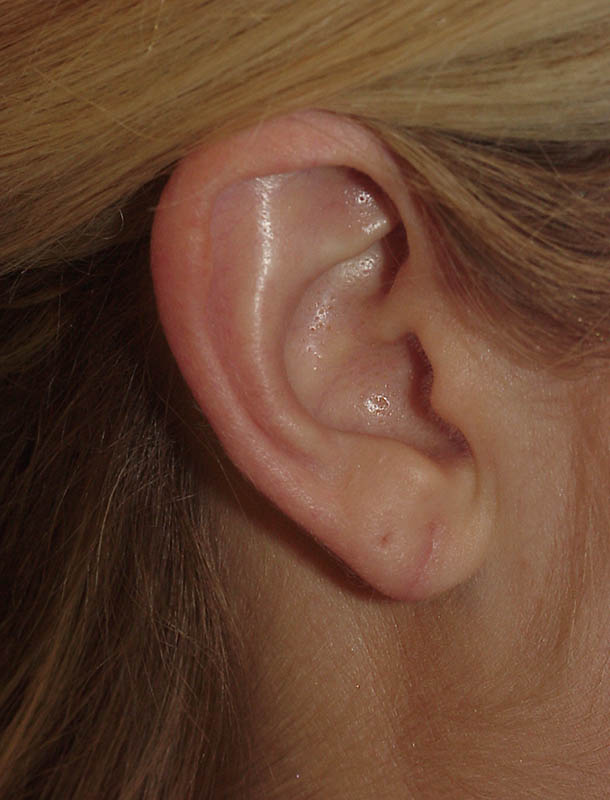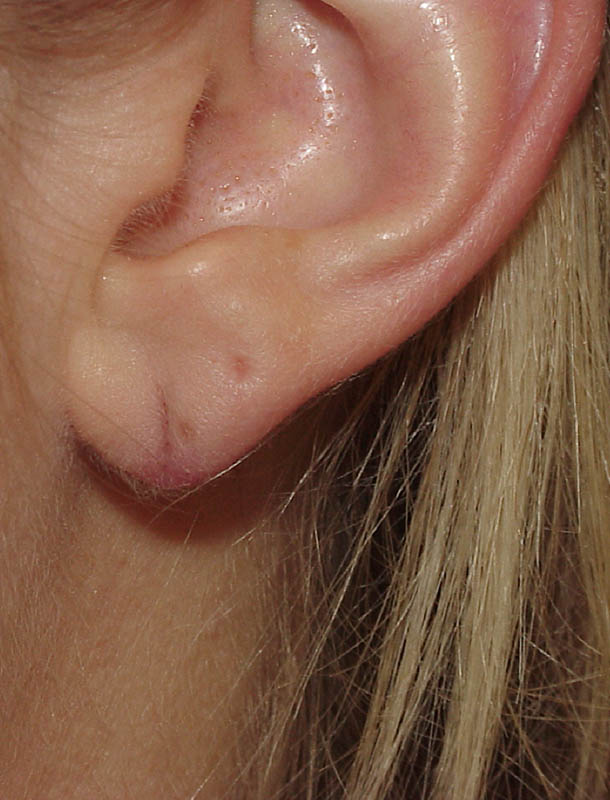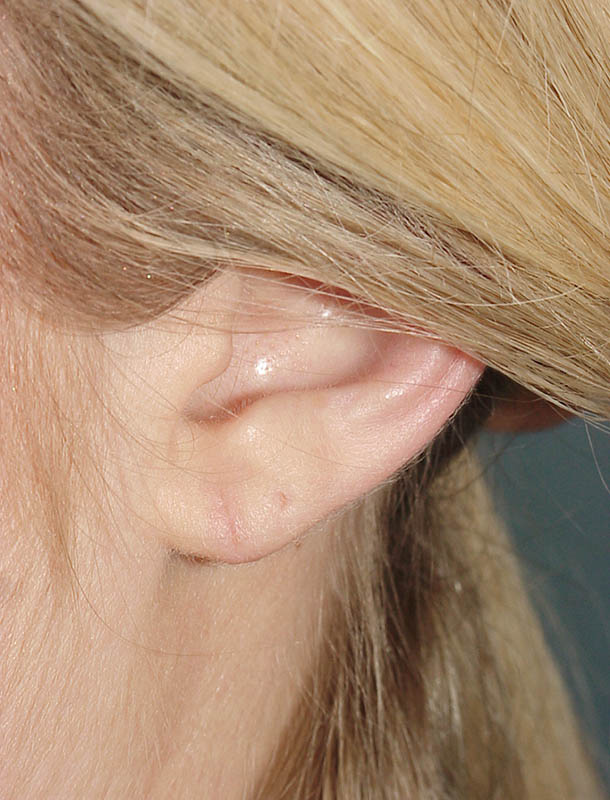It's Common For People To “try on” Different Looks Throughout Their Lifetimes
That includes trying different types of ear piercings. You may have sustained an injury to your earlobe from an earring, noticed that your favorite earrings sag downward from your ears, or had gauges inserted with residual gaping holes in your earlobes. If that describes you, in Annapolis MD earlobe repair from Dr. Namita Murthy is a safe way to restore a more natural look.
Earlobe Repair Before & Afters


What is Earlobe REPAIR?
Earlobe repair in Maryland is a safe, easy, minimally invasive surgical procedure. The surgery repairs stretched, torn, or scarred ear lobes.
Earlobe repair refers to an ear surgery that attempts to restore an ear lobe that has been broken or stretched due to trauma or pierced ears. For both ear lobe reduction and ear lobe stretching repair, small flaps are usually cut in the ear to reshape it. Then stitches are used to close the incisions and the ear lobe will heal in its newly formed shape.
What Type of Earlobe Repair DO I NEED?
Depending on the type of damage to the ear lobes, you have several kinds of procedures from which to choose. Ear lobe reconstruction can help sagging lobes. When an individual uses plugs to gauge their earlobes, they will eventually experience a drooping hole.
This can also happen if a person wears very heavy earrings for an extended period. During this procedure, the gap is surgically removed and the lobe is repaired with stitches. Split earlobe repair is a different procedure. Occasionally the ear lobe is torn. The most common cause includes getting an earring torn out of the lobe. For this operation, the doctor will cut away the skin lining the hole to manufacture a fresh wound.
The doctor then sews the parts of the ear together to hold the skin, facilitating healing. Finally, you may require ear lobe reduction. People who elect for this surgery are often older or born with larger-than-average ears. As we age, the skin loses elasticity, particularly in the earlobes. This results in droopy, long lobes. The reduction technique consists of cutting a wedge of the earlobe out, then reattaching the remaining lobe to the head, resulting in a smaller ear.

After Earlobe Repair SURGERY
After your procedure, stitches are typically removed after about a week if they were required. The ear lobe can be pierced again when the area has completely healed, approximately one to two months after the procedure is performed.
When piercing your ears again, you should not do so in the same spot, as the scar tissue can cause complications. Since earlobe repair is so minor, there is very little pain or downtime afterward. You can manage any discomfort using an over-the-counter pain reliever and get right back to your usual activities. Scarring from earlobe repair usually is very minimal.

Your Earlobe Repair Consultation with Dr. Murthy
If you are looking to repair your ear lobes or change their appearance, facial surgeon, Dr. Namita Murthy, will be happy to meet with you. She will discuss your specific concerns so you can make the best choice for your desired goals. With ten years of experience in reconstructive surgery, she is well-equipped to provide you with a skilled solution to restore your ears and complete your look. To find out more about earlobe repair Annapolis MD patients can contact Murthy Facial Plastic Surgery today.
Earlobe Repair FAQs
How long does earlobe repair take?
Each lobe can take around twenty to thirty minutes to repair, depending on the type of work you require.
Will the doctor use anesthesia?
More than likely, a local anesthetic will be used. If you have ear lobe repair conducted with other facial procedures, your doctor may use a general anesthetic, in which case you will be asleep.
Will I have to miss work or school?
While you could experience mild swelling and stitches that may be apparent for a few days, you will not have to stay home from work or school after your surgery.
Will I be able to shower or bathe afterward?
You may want to wait a day before submerging the area in water. Use common sense when cleaning the area by avoiding vigorous scrubbing. You may want to use a baby shampoo until the area is healed.
Will any follow-up be necessary?
Dr. Murthy may want to see you in about a week following surgery and will discuss any follow-up procedures with you during your visit.
Do I need to stop taking medications before ear lobe repair?
While ear lobe repair is relatively simple, you should discuss any medications you are currently taking during your consultation. Dr. Murthy will factor them into your surgery plan.
















